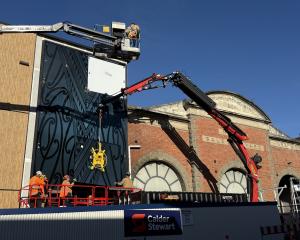A University of Otago-led research team has made a ''surprise'' scientific breakthrough which could lead to a cure for infants born with brain damage.
University of Otago Cure Kids professor of paediatric genetics, Stephen Robertson, led a team of international geneticists which discovered a key piece of information about how the human brain develops in utero.
The team deciphered how neural stem cells - which build the brain in utero and are present in newborns - communicate with each other, Prof Robertson said.
The discovery could be the first step in understanding how to harness neural stem cells - possibly using drugs - to repair brain damage in infants, he said.
''In that first year of life there is real potential to harness ... these stem cells.''
This was because new neurons derived from neural stem cells could pick up the job of damaged or dead neurons.
If the stem cells could be harnessed they could repair brain damage suffered from a range of sources, including being affected by a lack of oxygen at birth.
Finding a way to kick neural stem cells into action could still be a long way off though, he said.
''I talk about [the discovery as] a toe hold at the beginning of a very tall mountain.''
New research would be needed and harnessing stem cells might prove to difficult.
''We have got something to aim our guns at now. This is a target.''
The discovery was made while researching a rare genetic disorder which affected brain development.
The significance of the work lay in finding two key genes that underpinned the disorder and the language these genes used to conduct brain development.
''It was picking up on this mode of communication which the developing brain employs, which was the surprise,'' Prof Robertson said.
A Munich-based specialist in brain cell biology, Magdalena Gotz, who was a lead collaborator in the project, said the finding was ''new and significant''.
''It has been enormously satisfying to find another piece in this jigsaw and put it in place,'' she said.
The finding recently appeared as a feature article in Nature Genetics, a research journal.












